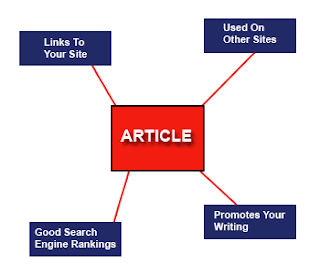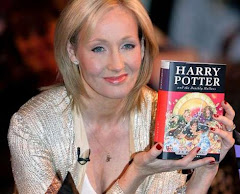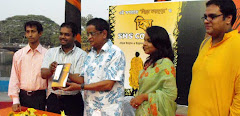
Part of the problem is right there in the name: e-book. In the print world, the word "book" is used to refer to both the content and the medium. In the digital realm, "e-book" refers to the content only—or rather, that's the intention. Unfortunately, the conflation of these two concepts in the nomenclature of print naturally carries over to the digital terminology, much to the confusion of all.
This is not the case with music, for example, where the medium and the content are separate. The medium changes—vinyl, 8-track, cassette, CD, MP3—but music is still music. Music is the product. Music is what you're buying. The medium is just a vessel, and that vessel changes ruthlessly. When a better, cheaper, faster, or more convenient medium appears, the music follows—with or without the content owners.
But books…there's a lot of baggage attached to that name. Giant tomes, portable paperbacks, or standard hardcovers, they're all recognizable as books. In the modern era, there have been no discontinuities of form on par with the those in the music industry to emphasize the separation of content and medium for the written word.
The popular objections to e-books are legion. Perhaps surprisingly, technology enthusiasts are among the worst offenders.
Certain genres in particular have clung stubbornly to the word and the medium of books: novels, biography, history. "I'm writing a book." "Bring a book with you on your trip." "I work in a bookstore." Though much of the content at Ars Technica could conceivably appear in a book, that's probably not the kind of thing you are thinking of when you read the the word "book" in the three previous sentences. Like I said, a lot of baggage.
Lest you think I'm belaboring the nomenclature point, you'll see its ugly little face peeking out from behind some of the most common complaints about e-books.
Paper tigers
The popular objections to e-books are legion. Perhaps surprisingly, technology enthusiasts (i.e., most of the people reading this) are among the worst offenders. Here are some of the greatest hits.
The screen
"I can't read an entire novel off a screen!" "I'll stick to paper with its vastly superior contrast ratio." "Eye strain! Eye strain!" "Yawn. Wake me up when we have 1200dpi displays."
With very few exceptions, all the unfavorable comparisons of bitmapped displays to print on paper are technically accurate. I'm here to tell you that they don't matter.
The amount of time people in the industrialized world spend reading text off a screen has long since nullified this complaint. Literally billions of people have proven that they're willing and able to read huge volumes of text off absolutely horrible screens. Think of text messaging on pagers and early cell phones, for example. Text messages are short, you say? I'm willing to bet that the average American will read substantially more text off his or her cell phone screen this year than from a book.
But cell phones are only the tip of the iceberg—an iceberg called "the web." How many words of text on web pages do you think will be read this year in the
People are clearly willing to read text off screens. Plain, old, often awful screens with tiny, ugly text and large pixels. Vast amounts of text, read over extended periods of time. Up to 40 hours a week at work alone, in the case of most office workers who sit in front of a computer all day. And more at home for pleasure. Hell, you're likely doing it right now (unless you printed the PDF version of this article or are being paid to read it).
I'll say it again: people will read text off screens. The optical superiority of paper is still very real, but alsoirrelevant. The minimum quality threshold for extended reading was passed a long, long time ago.
Now then, does that mean people are inclined to read novels and other traditional "books" off screens? Not necessarily. My sole point in this section is to get the screen technology argument off the table once and for all.
I'm not going to tell you that you really do want to read a novel off a screen. I am going to tell you that your reluctance to do so has absolutely nothing to do with the state of screen technology, despite your fervent protestations to the contrary. (…where "you" is a statistically average fuzz of an individual, obviously. Some people have legitimate physical issues with prolonged reading from emissive screens—and paper, for that matter. They are in the statistical noise, however.)
I think people understand this, intellectually. Yet the unwillingness to even consider reading a "book" on something that's not a book is very real. The mind cries out for a logical explanation, particularly the geek mind, thus the bogus rationalizations about screen technology, the limitations of which technology enthusiasts know all too well.
The device
Ah, first cousin to the venerable screen technology complaint: dissatisfaction with the reading device. "It's too big." "It's too sm
Part of the problem is right there in the name: e-book. In the print world, the word "book" is used to refer to both the content and the medium. In the digital realm, "e-book" refers to the content only—or rather, that's the intention. Unfortunately, the conflation of these two concepts in the nomenclature of print naturally carries over to the digital terminology, much to the confusion of all.
This is not the case with music, for example, where the medium and the content are separate. The medium changes—vinyl, 8-track, cassette, CD, MP3—but music is still music. Music is the product. Music is what you're buying. The medium is just a vessel, and that vessel changes ruthlessly. When a better, cheaper, faster, or more convenient medium appears, the music follows—with or without the content owners.
But books…there's a lot of baggage attached to that name. Giant tomes, portable paperbacks, or standard hardcovers, they're all recognizable as books. In the modern era, there have been no discontinuities of form on par with the those in the music industry to emphasize the separation of content and medium for the written word.
The popular objections to e-books are legion. Perhaps surprisingly, technology enthusiasts are among the worst offenders.
Certain genres in particular have clung stubbornly to the word and the medium of books: novels, biography, history. "I'm writing a book." "Bring a book with you on your trip." "I work in a bookstore." Though much of the content at Ars Technica could conceivably appear in a book, that's probably not the kind of thing you are thinking of when you read the the word "book" in the three previous sentences. Like I said, a lot of baggage.
Lest you think I'm belaboring the nomenclature point, you'll see its ugly little face peeking out from behind some of the most common complaints about e-books.
Paper tigers
The popular objections to e-books are legion. Perhaps surprisingly, technology enthusiasts (i.e., most of the people reading this) are among the worst offenders. Here are some of the greatest hits.
The screen
"I can't read an entire novel off a screen!" "I'll stick to paper with its vastly superior contrast ratio." "Eye strain! Eye strain!" "Yawn. Wake me up when we have 1200dpi displays."
With very few exceptions, all the unfavorable comparisons of bitmapped displays to print on paper are technically accurate. I'm here to tell you that they don't matter.
The amount of time people in the industrialized world spend reading text off a screen has long since nullified this complaint. Literally billions of people have proven that they're willing and able to read huge volumes of text off absolutely horrible screens. Think of text messaging on pagers and early cell phones, for example. Text messages are short, you say? I'm willing to bet that the average American will read substantially more text off his or her cell phone screen this year than from a book.
But cell phones are only the tip of the iceberg—an iceberg called "the web." How many words of text on web pages do you think will be read this year in the
People are clearly willing to read text off screens. Plain, old, often awful screens with tiny, ugly text and large pixels. Vast amounts of text, read over extended periods of time. Up to 40 hours a week at work alone, in the case of most office workers who sit in front of a computer all day. And more at home for pleasure. Hell, you're likely doing it right now (unless you printed the PDF version of this article or are being paid to read it).
I'll say it again: people will read text off screens. The optical superiority of paper is still very real, but alsoirrelevant. The minimum quality threshold for extended reading was passed a long, long time ago.
Now then, does that mean people are inclined to read novels and other traditional "books" off screens? Not necessarily. My sole point in this section is to get the screen technology argument off the table once and for all.
I'm not going to tell you that you really do want to read a novel off a screen. I am going to tell you that your reluctance to do so has absolutely nothing to do with the state of screen technology, despite your fervent protestations to the contrary. (…where "you" is a statistically average fuzz of an individual, obviously. Some people have legitimate physical issues with prolonged reading from emissive screens—and paper, for that matter. They are in the statistical noise, however.)
I think people understand this, intellectually. Yet the unwillingness to even consider reading a "book" on something that's not a book is very real. The mind cries out for a logical explanation, particularly the geek mind, thus the bogus rationalizations about screen technology, the limitations of which technology enthusiasts know all too well.



No comments:
Post a Comment